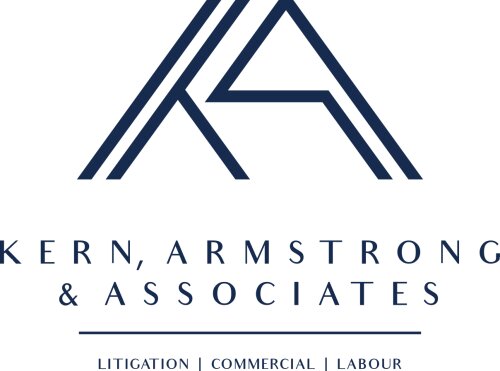Best International Trade Law Lawyers in Randburg
Share your needs with us, get contacted by law firms.
Free. Takes 2 min.
List of the best lawyers in Randburg, South Africa
South Africa International Trade Law Legal Articles
Browse our 2 legal articles about International Trade Law in South Africa written by expert lawyers.
- Managing Import Tariffs and Customs Disputes in South Africa
- Key Takeaways Managing import tariffs and resolving customs disputes in South Africa requires strict adherence to timelines and precise commodity classification. Navigating the South African Revenue Service (SARS) framework effectively protects businesses from costly delays and penalties. You have exactly 30 days to file a Notice of Objection against a... Read more →
- Repatriating Profits: South Africa Foreign Investment Laws
- Repatriating Profits: Foreign Investment Laws in South Africa South Africa offers a sophisticated legal framework for international investors, but the movement of capital across its borders is strictly governed by the South African Reserve Bank (SARB). Navigating these regulations is essential for any foreign-owned entity looking to return profits to... Read more →
About International Trade Law in Randburg, South Africa
International Trade Law encompasses the rules and regulations governing commercial transactions that occur between governments and businesses across countries. In Randburg, South Africa, it plays a crucial role in facilitating trade and ensuring compliance with international standards. Due to its location within South Africa's economic hub, Randburg sees significant trade activity, making knowledge of International Trade Law particularly vital for businesses operating in the region.
Why You May Need a Lawyer
There are numerous situations where you might need the expertise of a lawyer specializing in International Trade Law in Randburg. For instance, if you’re a business looking to expand overseas, you’ll need guidance on cross-border contracts, tariffs, and trade regulations. Similarly, companies facing disputes over international agreements or those needing compliance with export-import laws will require legal support to navigate these complex issues efficiently.
Local Laws Overview
Randburg, being part of South Africa, follows the country's legal framework for international trade. Key aspects of local laws relevant to international trade include compliance with the World Trade Organization’s regulations, adherence to import and export controls, tariff classifications, and customs duties. Additionally, South Africa’s participation in regional agreements such as the Southern African Development Community (SADC) Free Trade Area affects trade operations, which businesses must be knowledgeable about.
Frequently Asked Questions
What is the role of tariffs in international trade?
Tariffs are taxes imposed on imported and exported goods. They play a critical role in creating a balance between domestic and foreign products, protecting local industries, and generating government revenue.
How does one ensure compliance with international trade laws?
Compliance is ensured by understanding applicable international, national, and regional trade laws, keeping up-to-date with regulatory changes and working with knowledgeable legal professionals specializing in international trade.
What are the common legal issues in international trade?
Common issues include disputes over contractual interpretations, breach of contract, non-compliance with regulatory standards, tariff classifications, and remedy for unfair trade practices.
How can businesses benefit from a Free Trade Area like the SADC?
The SADC Free Trade Area allows member countries, including South Africa, to trade products with reduced tariffs, thereby promoting higher volumes of trade and economic integration.
What is the impact of currency fluctuations on international trade?
Currency fluctuations can affect the cost and pricing of goods and services across borders, impacting competitiveness and profitability in international markets.
Is the import/export of all goods regulated in South Africa?
Yes, certain goods require specific permits or licenses, while others might face restrictions due to health, safety, or environmental regulations.
What is dumping, and how is it addressed under international law?
Dumping occurs when a country exports goods at a price lower than the market value. It is addressed through anti-dumping measures that impose duties on such imports to protect domestic industries.
How can a lawyer assist in international trade negotiations?
A lawyer can provide strategic advice, draft and review contracts, ensure compliance with relevant laws, and represent clients in negotiations and dispute resolutions.
What documentation is required for international trade transactions?
Documentation includes bills of lading, invoices, packing lists, certificates of origin, insurance certificates, and any permits or licenses necessary for the specific goods involved.
How are trade disputes resolved?
Trade disputes can be resolved through litigation, arbitration, or mediation, depending on the nature of the dispute and the agreement between the parties involved.
Additional Resources
Those seeking further information or assistance can reach out to organizations such as the International Trade Administration Commission of South Africa (ITAC), the Department of Trade, Industry and Competition (DTIC), or industry-specific associations. These bodies provide guidelines, regulatory updates, and other resources crucial for legal compliance and dispute resolution.
Next Steps
If you require legal assistance in International Trade Law, start by consulting with a lawyer specializing in this field. It's advisable to prepare all relevant documentation and questions ahead of your consultation. Choosing a lawyer with extensive experience and a strong track record in international trade matters can provide valuable insights and help safeguard your interests in this complex legal landscape.
Lawzana helps you find the best lawyers and law firms in Randburg through a curated and pre-screened list of qualified legal professionals. Our platform offers rankings and detailed profiles of attorneys and law firms, allowing you to compare based on practice areas, including International Trade Law, experience, and client feedback.
Each profile includes a description of the firm's areas of practice, client reviews, team members and partners, year of establishment, spoken languages, office locations, contact information, social media presence, and any published articles or resources. Most firms on our platform speak English and are experienced in both local and international legal matters.
Get a quote from top-rated law firms in Randburg, South Africa — quickly, securely, and without unnecessary hassle.
Disclaimer:
The information provided on this page is for general informational purposes only and does not constitute legal advice. While we strive to ensure the accuracy and relevance of the content, legal information may change over time, and interpretations of the law can vary. You should always consult with a qualified legal professional for advice specific to your situation.
We disclaim all liability for actions taken or not taken based on the content of this page. If you believe any information is incorrect or outdated, please contact us, and we will review and update it where appropriate.










